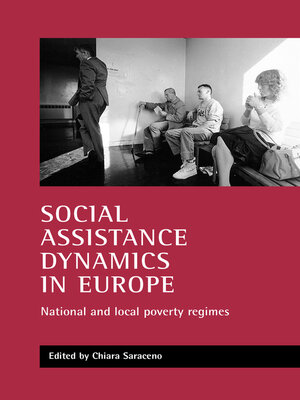
Sign up to save your library
With an OverDrive account, you can save your favorite libraries for at-a-glance information about availability. Find out more about OverDrive accounts.
Find this title in Libby, the library reading app by OverDrive.



Search for a digital library with this title
Title found at these libraries:
| Library Name | Distance |
|---|---|
| Loading... |
Throughout Europe income support for the poor has become highly controversial. It is often assumed to be not the answer to, but the cause of social exclusion, and is increasingly believed to give rise to welfare dependency.
This book contributes to a more complex understanding of welfare state regimes and welfare recipients in contemporary Europe. Describing social assistance 'careers' in different national and urban contexts, it documents the strong interplay between personal biographies and policy patterns - a particularly useful perspective which complements the more structural, top-down approach of much international work in social policy.
Social assistance dynamics in Europe is unique in comparing a range of northern and southern European countries (Sweden, Germany, France, Italy, Spain and Portugal); in its focus on the actual working of their policies: their set of actors; cultural background; implementation etc. and in its methodological approach, which combines longitudinal analysis with qualitative research.
Academics and students of welfare and poverty, policy makers and social policy evaluators in the public, private and non profit sectors will find this book invaluable.







